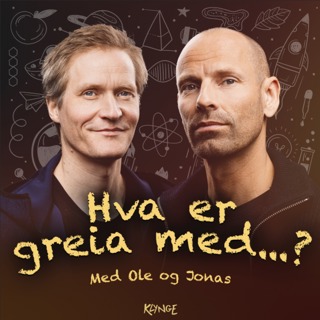
Alf Gunvald Nilsen and Srila Roy, “New Subaltern Politics: Reconceptualizing Hegemony and Resistance in Contemporary India” (Oxford UPs 2015)
New Subaltern Politics: Reconceptualizing Hegemony and Resistance in Contemporary India (Oxford University Press, 2015), edited by Alf Gunvald Nilsen and Srila Roy, is a wonderfully rich and theoretically coherent collection of texts that critically assess the legacies of Subaltern Studies through research into political movements in India today. The case studies range from students at elite higher education institutes shoring up their privilege, to queer activism in Kolkata, to Dalit villagers fighting land grabs, and the studies’ richness allows for a really nuanced relational understanding of subalternity, hegemony and the state that make the book a truly conceptually and ethnographically innovative collection. Learn more about your ad choices. Visit megaphone.fm/adchoices Support our show by becoming a premium member! https://newbooksnetwork.supportingcast.fm/critical-theory
8 Sep 201537min

Liz McFall, “Devising Consumption Cultural Economies of Insurance, Credit and Spending” (Routledge, 2014)
The role of financial services in individuals’ and communities’ everyday lives is more important than ever. In Devising Consumption: Cultural Economies of Insurance, Credit and Spending (Routledge, 2014), Liz McFall charts the rise of one particular element of financial services, door-to-door sales, to understand the role of insurance and credit in society. In doing so McFall aims to ‘ventriloquise the lives and consumption practices of the silent poor’, as well as charting a the history of a very neglected element of the story of finance’s role in contemporary life. The book contains a wealth of historical data, alongside a theoretical engagement with the meaning of ‘the device’ within current social theoretical literature. Moreover the book offers reflections on the role and workings of markets and states, both with regard to finance and more broadly to the government of social life. The combination of these perspectives offers an important new lens through which to understand the sociology of consumption and thus, more generally, the social world itself. Learn more about your ad choices. Visit megaphone.fm/adchoices Support our show by becoming a premium member! https://newbooksnetwork.supportingcast.fm/critical-theory
2 Sep 201546min

William Davies, “The Happiness Industry: How the Government and Big Business Sold Us Well-Being” (Verso, 2015)
Are you happy? In his new book The Happiness Industry: How the Government and Big Business Sold Us Well-Being (Verso, 2015), William Davies, a senior lecturer at Goldsmiths’ College, University of London, critically investigates this question. The book offers skepticism towardsthe demand that economy and society be happy, skepticism founded in an interrogation of the practices of contemporary government and businesses. A whole range of our everyday experiences, including ‘nudges’ for citizens and staff, the perverse incentives of metrics, through tothe consequences of how psychiatry classifies depression, are subject to critical scrutiny.Moreover, the book acts as a primer on economics, psychology and organizational theory, clearly articulating the roots and the consequences of our current economic and social settlement. The book concludes with the possibility of a more democratic way of organizing the world, in contrast to our impersonal, oppressive, and data driven present. Dr Davies is a co-director of Goldsmiths’ Political Economy Research Centre and blogs at Potlatch. Learn more about your ad choices. Visit megaphone.fm/adchoices Support our show by becoming a premium member! https://newbooksnetwork.supportingcast.fm/critical-theory
18 Aug 201544min

Christopher Vitale, “Networkologies: A Philosophy of Networks for a Hyperconnected Age” (Zero Books, 2014)
Networks seem to be the dominant metaphor for contemporary society. In Networkologies: A Philosophy of Networks for a Hyperconnected Age (Zero Books, 2014), Christopher Vitale sets out a manifesto for understanding and using networks as the basis of a new philosophy. The book draws on continental philosophy, complex systems theory and a range of other elements to both introduce and contextualise, as well as present, the networkology manifesto. The book explores what networks are, how they emerge, how they change and how they are resilient (or not). The book intervenes in the contemporary interest in networks and will thus be of interest beyond just the critical theoretical disciplines. The text is also part of a much broader networkological project, including an original iteration of the manifesto and several papers. You can find out more about the project here. Learn more about your ad choices. Visit megaphone.fm/adchoices Support our show by becoming a premium member! https://newbooksnetwork.supportingcast.fm/critical-theory
12 Aug 201543min

Craig Martin, “Capitalizing Religion: Ideology and the Opiate of the Bourgeoisie” (Bloomsbury, 2014)
Whether you need help being more focused at work, are having a spiritual crisis, or want to understand how you can change your inner self for the better, the popular self-help and spiritual well-being market has got you covered. In Capitalizing Religion: Ideology and the Opiate of the Bourgeoisie (Bloomsbury, 2014), Craig Martin, Associate Professor of Religious Studies St. Thomas Aquinas College, examines the rhetoric of individualism at root in these works and popular conceptions of ‘spirituality’ or individual religion. He demonstrates that individual religion has been placed within sets of dichotomies, communal vs. individual, tradition vs. choice, organized religion vs. spirituality, that establish the continuing conversations about contemporary spirituality. Overall, he argues that many spirituality and related self-help discourses recommend quietism, consumerism, and worker productivity, which reproduce the status quo within neoliberal capitalism. In our conversation we discuss the relationship between individuals and communities, the role of human agency, experience, ideology, contemporary fiction, Durkheim, William James, Karl Marx, Louis Althusser, and the joys of reading Deepak Chopra. Learn more about your ad choices. Visit megaphone.fm/adchoices Support our show by becoming a premium member! https://newbooksnetwork.supportingcast.fm/critical-theory
4 Aug 20151h 2min

Alexander Etkind, “Warped Mourning: Stories of the Undead in the Land of the Unburied” (Stanford UP, 2013)
Theoretical and historical accounts of postcatastrophic societies often discuss melancholia and trauma at length but leave processes of mourning underexplored. In Warped Mourning: Stories of the Undead in the Land of the Unburied (Stanford UP, 2013), Alexander Etkind shows why mourning is more conducive to cultural analysis. Where trauma is unsymbolized and melancholia is contained within the self, mourning is often an address to the other.Mourning might entail attempts to remember, creatively work through, and make manifest losses in poetry, memorials, histories, painting, and other art forms.Without access to the unconscious, cultural historians can only engage what has already been represented and written — that which has materiality and symbolic richness.Individual and mutigenerational testaments and rituals of mourning — warped, haunted, and incomplete — are all that scholars have available. Warped Mourning is about how three generations spanning the Soviet and post-Soviet periods have mourned the millions who perished in the Terror, the Stalinist political repressions of the 1930s.Etkind peruses a broad array of writings and artifacts, offering interpretations inflected by insights from psychoanalysis and critical theory.Autobiographies, fiction, film, visual art, academic writings, and sites of memory like monuments contribute to a complex rendering of the work and evolution of mourning: from the mimetic and demetaphorized (potentially deadly) performative acts in the 1950s by those who directly experienced the gulag, to the still traumatized and politicized mourning by their children in the 1960s and 1970s, and, finally, to the more estranged or distanced remembrances of the post-Soviet years and today. Etkind argues that the killings and torture of the Soviet period were not fully worked through for a number of reasons: the gulag was state violence (and the state controlled public mourning), the division between perpetrators and victims was far from clear, and mourning the persecuted eventually became entwined with mourning the ideas of communism.Unfinished mourning and consequent improper burial and recognition of purge victims produced a culture replete with specters and uncanny monsters.The unpaid debt to the dead also created a strange temporality.Until recently, perhaps, Russia’s present has been flooded by the past.In the absence of proper monuments or sufficient memory making, history haunts Russia, propelling its politics and shaping its narratives with an immediacy and force unknown in the West. Learn more about your ad choices. Visit megaphone.fm/adchoices Support our show by becoming a premium member! https://newbooksnetwork.supportingcast.fm/critical-theory
26 Jul 201550min

Joe Deville, “Lived Economies of Default: Consumer Credit, Debt Collection and the Capture of Affect” (Routledge, 2015)
Credit, debt and default are embedded into everyday life, whether as a constant part of people’s daily routines or as a constantly discussed topic in news media. Joe Deville‘s new book, Lived Economies of Default: Consumer Credit, Debt Collection and the Capture of Affect, helps to make sense of this by asking how this core part of the social world functions.The book draws on science and technology studies and theories of affect, to lay bare the practices of attaching the debtor to debt, and to getting debts to be repaid. The book has case studies of credit cards, collections agencies, telephone calls and letters, revealing the reality of default and debt in contemporary society. The book will appeal widely, not only to sociology, organization studies and anthropology, but also to politics, psychology, and the wider humanities. Learn more about your ad choices. Visit megaphone.fm/adchoices Support our show by becoming a premium member! https://newbooksnetwork.supportingcast.fm/critical-theory
20 Jul 201557min

Nancy Fraser, “Transnationalizing the Public Sphere” (Polity, 2014)
How is “the public sphere” best conceptualized on a transnational scale? Nancy Fraser (The New School for Social Research) explores this pressing question in her book Transnationalizing the Public Sphere (Polity, 2014). Opening with Fraser’s foundational essay, “Transnationalizing the Public Sphere: On the Legitimacy and Efficacy of Public Opinion in a Post-Westphalian World,” the book then contains critiques of the essay from a range of scholars working in different fields and concludes with Fraser’s reply, “Publicity, Subjection, Critique.” The interview covers the history and formation of public sphere theory, the currents and forces in the “postnational constellation” that demands its rethinking, critical theory, what normative legitimacy and political efficacy look like on the transnational scale, and more. The book is of interest to democratic theorists, scholars of globalization, critical and postcolonial theorists, media studies scholars, and other fields. Learn more about your ad choices. Visit megaphone.fm/adchoices Support our show by becoming a premium member! https://newbooksnetwork.supportingcast.fm/critical-theory
8 Jul 20151h 10min




















